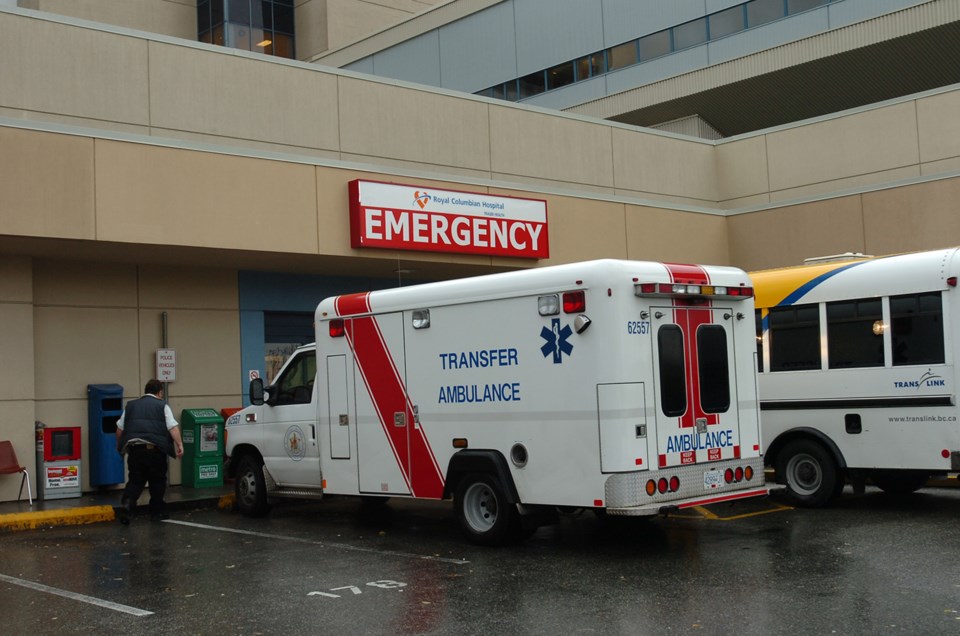New Westminster is sounding alarms about changes to the way ambulances will be dispatched in B.C.
Council has spoken out against the B.C. Emergency Health Services’ resource allocation plan, fearing it would cause delays in the dispatch of ambulances and increase demand for fire services to attend and remain at calls.
Coun. Chuck Puchmayr believes the proposal is an attempt to reduce calls made by the B.C. Ambulance Service by offloading calls to fire departments. He believes the change will increase costs to the city and will put citizens at risk because of delayed response times.
Coun. Betty McIntosh opposed council’s recommendation to strongly oppose the B.C. Emergency Health Services board’s resource allocation plan, without getting more information about the proposal from the organization. She said the plan is designed to clean up issues related to the dispatch of ambulances to medical calls.
“It’s a different way of dispatching,” she said of the proposal. “It’s a way to make it safer for everyone in the community.”
McIntosh, who worked as a registered nurse at Royal Columbian Hospital for many years, said there are times when ambulances are called and they are told it’s a “red light” call with red lights and sirens, when it’s not needed.
McIntosh said she couldn’t support council’s motion without getting more information about the plan from B.C. Emergency Health Services. She said she spoke to the city’s fire chief a few weeks ago about the proposal and he didn’t seem all that concerned about the proposed changes.
Coun. Bill Harper said the fire chief voiced concerns about the proposed changes at Monday’s committee of the whole meeting, and he can’t understand McIntosh’s position on this issue. He said some calls now being serviced by ambulances wouldn’t be in the future.
Harper believes there are incidents where it isn’t clear what kind of response is needed when someone first calls for assistance.
“If you are having a panic attack, you sometimes don’t know what is going on,” he said.
Harper views the changes as another form of downloading from senior governments. He noted the city’s fire trucks will be on the roads more, as they’ll be attending calls that would have been served by ambulances.
Puchmayr also believes that the issue of safety of intersections when ambulances are driving with red lights and sirens is “another red herring” that’s been presented as part of the change in service.
“There’s no evidence that ambulances going on Code 3s are causing accidents,” he said.
Council approved a motion to assert the protocols will not just offload B.C. Ambulance Services to city fire services, at an increased cost to local governments, or put patients at serious risk. The city will ask a representative from the B.C. Emergency Health Services to attend a future council meeting to address the issue.
McIntosh urged people watching Monday night’s council meeting not to be discouraged from calling 911, if needed.
“You will get the response needed, period,” she said.
In November, Burnaby council expressed concern about the resource allocation changes announced in October. Even though ambulances will still attend calls, Burnaby council also fears citizens will be faced with longer waits for ambulances to arrive and fire service personnel could miss other calls while waiting with patients for ambulances.
Kelsie Carwithen, B.C. Emergency Health Services spokesperson, told the Burnaby NOW that the changes are meant to increase the number of routine calls. The decision to change the resource allocation plan came out of a review that happens regularly, and changes are based on medical evidence, including a review of 630,000 patient records by physicians and a working group.
Carwithen stressed the decision is not a cost-saving measure because an ambulance will still attend every call.



